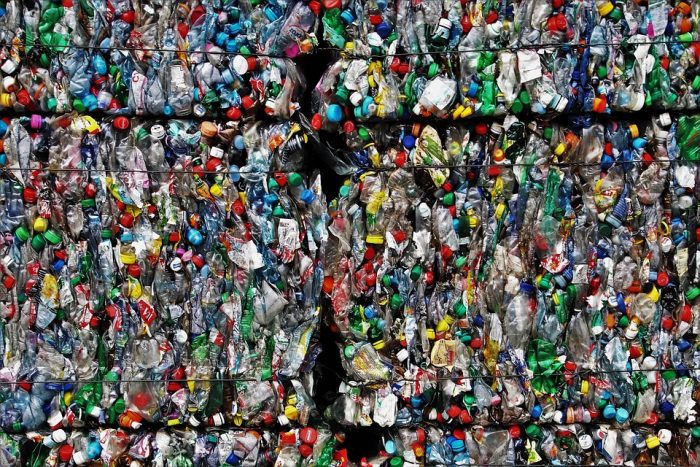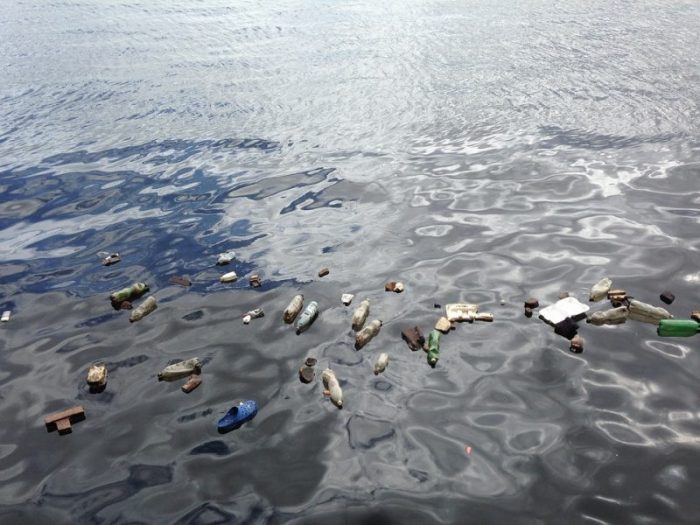
It is thought that around 300 million tons of plastic are produced every year, the majority of which finds itself in landfills or the oceans. After all the horrible news about plastic pollution in landfills, soil, freshwater, the oceans, the bodies of marine animals, and potentially our own bodies, it’s nice to have a bit of good news regarding attempts to minimize plastic waste.
Major corporations like Nestlé, Kellogg’s, and Coca-Cola will be among 250 other major brand names to cut certain plastic trash from their respective operations.
A Pledge To Curb Plastic Waste
As reported by The Independent, the pledge was signed as a response to increasing public pressure on retailers and plastic manufacturers to reduce the amount of plastic created every year. As part of the pledge, the companies will be eliminating all single-use plastics, and upgrading their facilities so that new packaging will be recyclable by the middle of next decade.
The plastic reduction initiative is the result of a partnership between the United Nations Environment Program (UNEP) and the Ellen MacArthur Foundation. The UN has responded to the pledge, calling it one of the most ambitious plastic pollution reduction efforts ever, with Erik Solheim, UNEP’s executive director saying ambitious targets are needed in the fight to reduce plastic pollution. If the current rate of plastic production and consumption goes unchecked, it is estimated that by the year 2050 there will be more plastic in the oceans than sea life.
Recent years have seen ambitious attempts to reduce the amount of plastic that finds its way into the environment, but it is currently estimated that some 8 million tons of plastic waste still managed to enter the ocean every year, where it kills marine life and is absorbed by marine animals, entering the food chain as a result. As Ellen MacArthur of the MacArthur Foundation said to the Independent, it is critical to reduce plastic pollution at its source, in addition to creating plastic cleanup projects. MacArthur explained:
We know that cleaning up plastics from our beaches and oceans is vital, but this does not stop the tide of plastic entering the oceans each year. We need to move upstream to the source of the flow.
The pledge marks an important recognition by industry heavyweights that the plastic produced by their operations is polluting the environment. Nestle, PepsiCo, and Coca-Cola Were three signers of the pledge, and they are also the world’s biggest plastic polluters, according to a report created by the Break Free From Plastic initiative. Other signatories to the pledge include companies like Unilever, Mars, H and M, L’Oreal, and Danone.
The president of WWF International, Pavan Sukhdev, said that the pledge represents a critical effort to join together the efforts of both governments and corporations to reduce plastic solution and create worldwide solutions for reducing waste. As Sukhdev has alluded to, the role of governance in curbing plastic pollution is also important, and last week the European Parliament approved a complete ban on certain single-use plastic materials.
A Ban Of Certain Types Of Plastic Products
As reported by Reuters last week, European Union lawmakers overwhelmingly approved the banning of ten single-use plastic products that have clear, easily available alternatives. The ban will be in full effect by 2021, and in addition, European Union will also be obligated to recycle around 90% of all plastic bottles by the middle of next decade.
These EU states will also be expected to help producers of plastic products cover waste management associated costs. Currently, the European Union as a whole produces around 25 million tons of plastic and recycles only about a quarter of it. This makes the push for 90% recycling a massive effort to cut plastic pollution.
In addition to products like plastic straws and utensils with alternatives, polystyrene fast food containers are also being targeted by the lawmakers. Cigarette butts, which may take over a decade to dissolve in the oceans, are also subjects of the proposal. EU countries are expected to reduce waste and cigarette butts by half by 2025 and by 80% by the year 2030. Beyond this, other forms of waste management like the collection of discarded fishing nets are also being discussed.
It seems likely that the decision was motivated by the growing awareness of the damage that plastic pollution has done to the oceans and marine life, as well as a desire to end reliance on developing nations to deal with plastic waste. China’s decision to stop recycling plastic waste from other countries probably also played a role.
The final tenets of the proposal will still have to be ironed out during discussions between EU member states. Some member states have worried that the demands of the proposal will be too high for their own industries to implement by the deadline. Despite this, Frans Timmermans, the EU Commission’s First Vice President, said that it is encouraging to hear voices in the private sector accept responsibility for reducing plastic waste and environmental impact. Timmermans said that Europe is coming to terms with “the fact that we cannot just put it on someone else’s shoulders”.
An Attempt At Cleaning Up The Oceans
As for the cleanup of currently existing waste, The Ocean Cleanup foundation has recently begun cleanup of the oceans, focusing on areas of the Great Pacific Garbage Patch. According to CNN, The Ocean Cleanup foundation aims to trap bits of trash and debris with a series of screens that are connected together. The screens are attached to a pipe and are around 3 meters deep. The screens will collect bits of plastic trash and every few months a boat will return to the location of the screens and collect the gathered debris, bringing it to shore where the plastic will hopefully be recycled to create new items.
The Ocean Cleanup foundation is hoping to collect some 50 tons of trash by April of next year and are endeavoring to clean around 90% of the world’s ocean plastic by 2040. Some critics of the program have argued that it will be much more effective to prevent trash from entering the oceans in the first place by reducing our use of plastic. Furthermore, floating trash collection screens may not be the most efficient way to clean up trash, as volunteer groups cleaning up beaches and water have managed to collect somewhere around 7 to 10 times the amount of trash the foundation is aiming to collect by spring of next year.
For their part, the Ocean Cleanup foundation believes their actions will make a difference and are in fact necessary. CEO of Ocean Cleanup Boyan Slat said to CNN that unless it is collected by someone, the plastic in the ocean isn’t going away.
“It’s probably still going to be there in 100 years, so really only if we go out there and clean it up this amount of plastic is going to go down,” said Slat.











